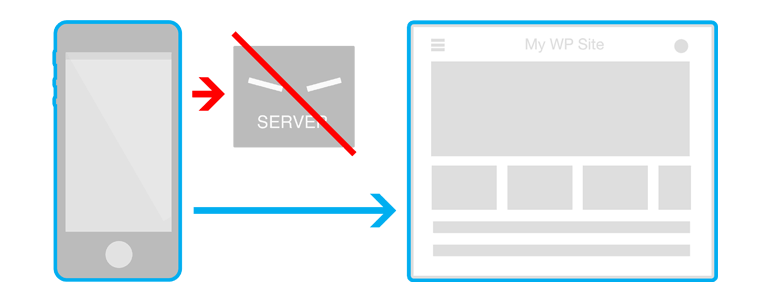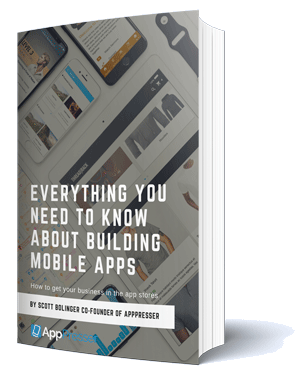Why WordPress works great with a mobile app

Using WordPress with mobile apps is a fairly new concept, and it’s certainly not mainstream.
If you ask a traditional mobile app developer about using WordPress with a mobile app, they would probably look at you funny. There is certainly skepticism about how well it can work, and that’s understandable.
After doing this for more than a year, and hearing from lots of customers, I would make the case that WordPress works great as a back end for mobile apps. I wouldn’t claim it’s perfect for every project, but there are things you can do that are almost impossible with other platforms.
Here’s why.
WordPress for websites, and apps

WordPress is the most popular way to publish on the web (24% of all websites) for a reason: it’s easy to use, highly extendable, and open source. You can get a website up quickly, keep everything on your own server, and scale it up almost infinitely. You don’t need to be a web developer to publish a new post, or change themes. These are the biggest strengths of the platform, and they translate to mobile apps as well.
In my experience, there are 3 main things people want:
1. Ownership: To own their data by keeping it on their own server.
2. Ease of use: To use existing website content, and customize easily.
3. Control: To update their website and their app in the same place.
I actually underestimated the importance of these 3 things. Performance and features are important, but they only come after these. These are the essential strengths of WordPress as an application platform, let’s look at them in more depth.
Ownership
Most apps require some sort of database, and possibly creating a UI for a client. WordPress already does this, so why not modify WordPress instead of re-inventing the wheel? The data is already structured in an easily usable format for content, media, users, and lots more. Not to mention custom plugins that add functionality like Ecommerce, events, forms, etc.
Some companies even require all the data to be on their own server, so a 3rd party app builder is out of the question. Building out your own database and server just for the app is certainly possible, but it can be difficult and expensive.
WordPress already has a pre-built database structure, and a UI to go along with it, for free. It’s hard to beat that.
Ease of use
Many businesses have existing content in WordPress that is very difficult to get into an app. For example, a BBPress forum, WooCommerce products, or a BuddyPress social network.
Most app builders require rebuilding all of this content in their CMS, for technical reasons. It’s much easier to put their existing website content directly from WordPress into the app, instead of having to rebuild everything.
More control

What people love about WordPress is that they can make a change to their site without calling their developer. It puts the power of web design in the layman’s hands. It does the same thing for mobile apps as well, if you update your site, the app is also updated.
I recently talked to a gentleman with a podcasting app. When he creates a new podcast, he has to add it to his website, then go over to the app CMS and add it there as well. If he used WordPress as the CMS for the website and the app, he could update everything in one place.
You can even send push notifications to the app from WordPress, which allows developers to easily hand off control when a project is completed.
WordPress for all apps?
WordPress is a tool, just like any other technology. It’s not perfect for every project.
However, many developers simply aren’t aware of the advantages of using an open source CMS as a back end for a mobile app.
No tool is perfect for every project, but WordPress works great for small businesses that want an affordable app that is easy to manage.


Awesome article guys, thanks for sharing.